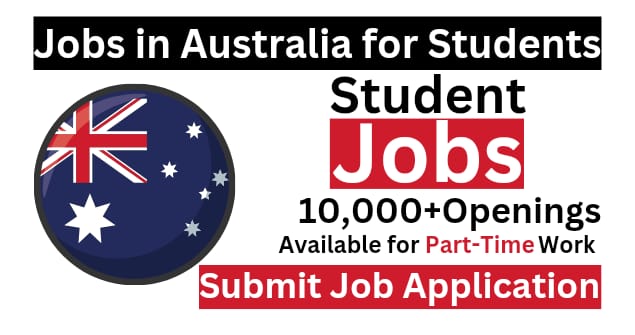Finding a job as a student in Australia can be a great way to gain valuable work experience, earn some extra money, and potentially offset the costs of your education. There are many different types of jobs available to students in Australia, ranging from part-time, casual, and seasonal positions to internships and co-op placements. Here are some tips for finding a job as a student in Australia:
Start by identifying your goals and interests: Before you begin your job search, it's important to think about what you want to achieve through your work experience. Are you looking for a part-time job to help pay for your tuition and living expenses? Are you interested in gaining experience in a particular field or industry? Understanding your goals and interests can help you focus your job search and make the most of your time and energy.
Use job search websites and job boards: There are many websites and job boards that are specifically designed to help students find jobs in Australia. Some popular options include Seek, Indeed, and Gumtree. You can use these websites to search for jobs by location, job type, and industry. You can also set up job alerts to receive notifications when new jobs are posted that match your search criteria.
Check with your school's career center: Many schools in Australia have career centers that offer a range of resources and services to help students find jobs. These centers may have job listings, resume and cover letter writing workshops, and career fairs. They may also be able to connect you with employers who are looking for students to fill positions.
Network with people in your field: Building relationships with people in your field of study or industry can be a great way to learn about job opportunities. You can do this by attending industry events, joining professional associations, and networking with professors, classmates, and alumni.
Consider internships and co-op placements: Internships and co-op placements are a great way for students to gain practical work experience and build their skills and knowledge. These types of positions can be paid or unpaid, and they may be full-time or part-time. Many schools in Australia have programs that help students find internships and co-op placements, so be sure to check with your school's career center for more information.
Be open to different types of jobs: While it's important to focus your job search on positions that align with your goals and interests, it's also important to be open to different types of jobs. This can help you gain a wide range of skills and experiences, and it can also help you build your network and make connections in different industries.
Tailor your resume and cover letter: When applying for jobs, it's important to tailor your resume and cover letter to each specific position. This means highlighting your skills and experiences that are most relevant to the job you are applying for. You should also include any relevant coursework or projects, as well as any volunteer or extracurricular activities that demonstrate your skills and commitment.
Practice your interview skills: Before you start applying for jobs, it's a good idea to practice your interview skills. You can do this by role-playing with a friend or family member, or by participating in mock interviews at your school's career center. Being well-prepared for an interview can help you feel more confident and make a strong impression on potential employers.
By following these tips, you can increase your chances of finding a job as a student in Australia. Remember to be persistent, flexible, and open to new opportunities, and you will eventually find a job that is right for you.


















